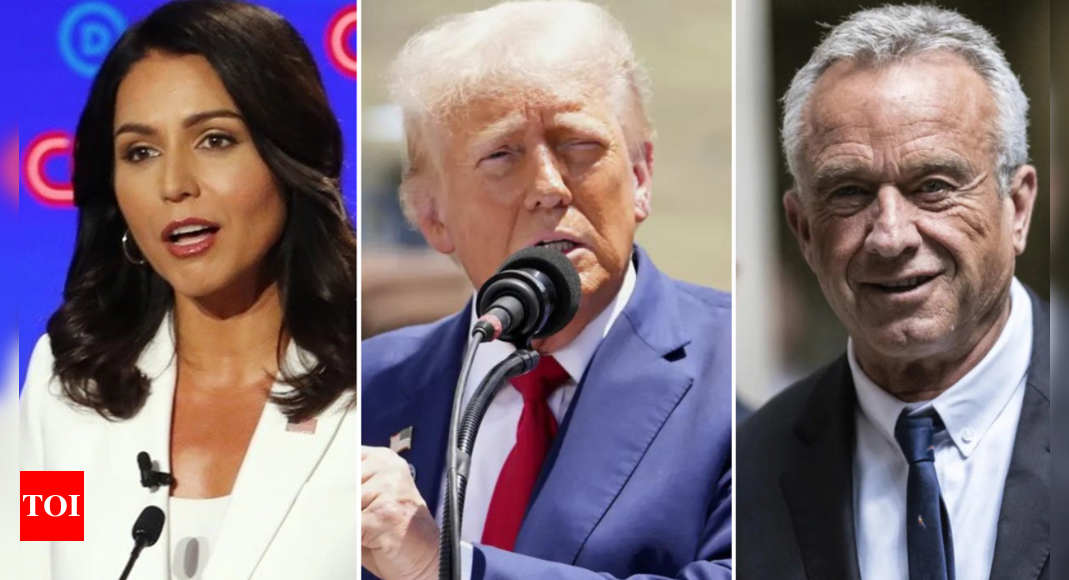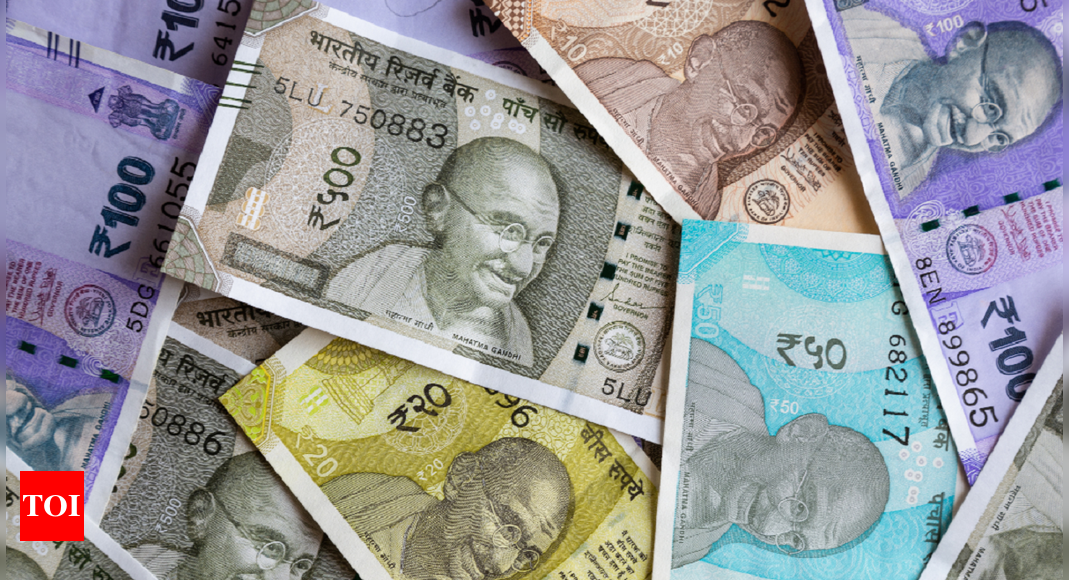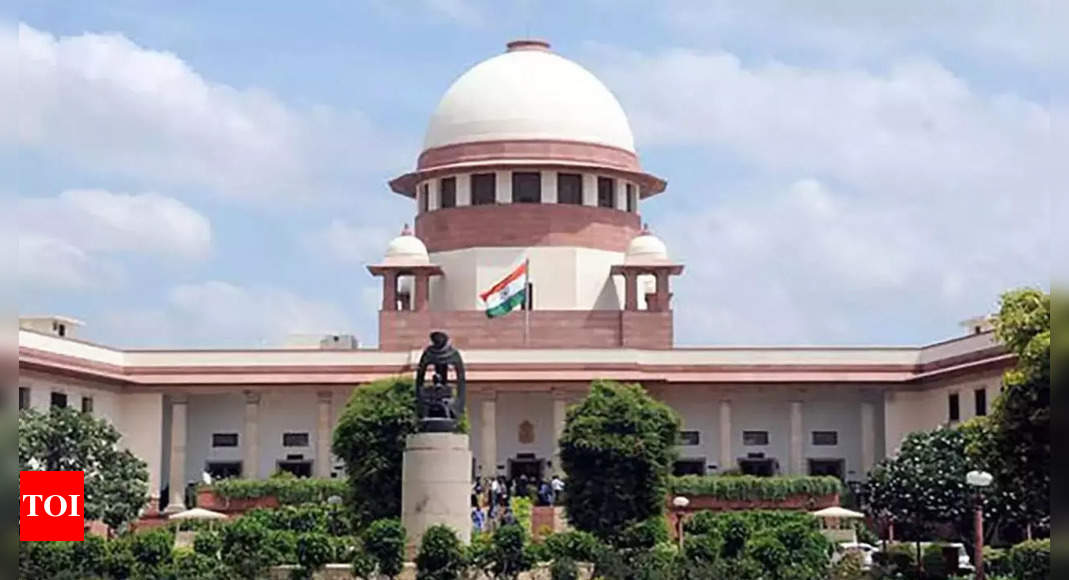
Donald Trump has surrounded himself with ideological shape-shifters — former Democrats and former anti-Trumpers willing to profess a fawning loyalty to him.
One wouldn’t be wrong to think that this results in a treacherous environment. But Trump prefers this sort of snake pit because he understands snakes.
On Tuesday, The New York Times reported that Trump plans to name Tulsi Gabbard and Robert F. Kennedy Jr., who both recently endorsed him, as honorary co-chairs of his presidential transition team.Gabbard and Kennedy sought the Democratic nomination for president — Gabbard in 2020 and Kennedy in this election cycle before starting an independent bid.
But these two are only the latest onetime opponents that Trump has pulled into his orbit. Many of Trump’s Republican primary challengers from 2016 and 2024 became sycophants, some of them gushing over him at July’s Republican National Convention. Some of his most vocal critics in Congress have become his confidants, like Sen. Lindsey Graham, who once called Trump a “race-baiting, xenophobic, religious bigot.”
Even his own running mate, Sen. JD Vance, once wrote that the former president “is cultural heroin” and behind closed doors called him “America’s Hitler.”
Trump embraces people who will swallow their words and bury their beliefs. He seems to like people to demonstrate that their convictions are hollow. To him, it seems obvious that those are people he can try to manipulate. They are the people he prefers, rather than those who tell him no.
Trump is, above all, transactional, and in every transaction, he seeks leverage; once an opponent has bowed to him, he has the leverage he needs.
A parade of former Trump administration officials has condemned him or refused to endorse him, but he and his supporters dismiss them as turncoats. In a certain light, they have a point: Trump hasn’t changed. They knew — or should have known — who he was when they accepted their posts.
Many Americans may not fully appreciate how much like “Game of Thrones” Washington politics is, how intoxicating political power can be, how proximity to that power orders society.
I believe that part of the genius of Trump wasn’t really genius at all but simply the clarity of an outsider who assessed and then exploited the cravenness of much of our political culture.
He understood this social jockeying from experience: Trump is from New York, where he rose on the fringes of high society because he was too crass to be invited into it. His rise was propelled by, among other things, a hit television show, an assortment of cameo appearances in film and on television, a string of co-written books and being lionized in rap lyrics.
In his political career, Trump has turned the Republican Party — and much of Washington — into his real-life game of “The Apprentice,” with various figures making expedient alliances, trying desperately to avoid elimination and all competing for his approval.
Washington, to Trump, is a survivalist game, and in it, compromising oneself is a small price to pay for survival.
In the end, in this game there are no victims. The pawns all play willingly. They abandon their morals and ethics of their own volition. They have seen the calamity Trump has brought to the lives of others who cross over to his side, yet they follow suit.
On Sunday in an interview on Fox News, Kennedy said, “I think President Trump is going to make a series of announcements about other Democrats who are joining his campaign, and you know, I want to make America healthy again, and so does President Trump.”
Now, Kennedy blows a lot of smoke, but the idea that Trump would make America healthy again is too much to take. When it comes to literal health, he failed as president to take the Covid-19 pandemic seriously and tried his best to repeal the Affordable Care Act. Metaphorically, he threatens to reshape government as we know it — something Kennedy seemed to recognize in 2020, when he said that in many ways, Trump “discredited the American experiment with self-governance.” Ditto Gabbard, who once called him “corrupt” and “unqualified to serve.”
But they don’t care about the obvious contradictions. They’re playing the game. Trump wanted the fraction of support Kennedy drew this year and the imprimatur of a former Democratic congresswoman. In exchange, he’ll grant them some marginal role and a trifle of power by association. Unless and until he takes it away: “Ron DeSanctimonious,” anyone?
Washington, by some measures, is the most important city in the country. By others, it is the shallowest. Trump has exposed many of the city’s players as apostates and built his Republican Party with these people at the core.
One wouldn’t be wrong to think that this results in a treacherous environment. But Trump prefers this sort of snake pit because he understands snakes.
On Tuesday, The New York Times reported that Trump plans to name Tulsi Gabbard and Robert F. Kennedy Jr., who both recently endorsed him, as honorary co-chairs of his presidential transition team.Gabbard and Kennedy sought the Democratic nomination for president — Gabbard in 2020 and Kennedy in this election cycle before starting an independent bid.
But these two are only the latest onetime opponents that Trump has pulled into his orbit. Many of Trump’s Republican primary challengers from 2016 and 2024 became sycophants, some of them gushing over him at July’s Republican National Convention. Some of his most vocal critics in Congress have become his confidants, like Sen. Lindsey Graham, who once called Trump a “race-baiting, xenophobic, religious bigot.”
Even his own running mate, Sen. JD Vance, once wrote that the former president “is cultural heroin” and behind closed doors called him “America’s Hitler.”
Trump embraces people who will swallow their words and bury their beliefs. He seems to like people to demonstrate that their convictions are hollow. To him, it seems obvious that those are people he can try to manipulate. They are the people he prefers, rather than those who tell him no.
Trump is, above all, transactional, and in every transaction, he seeks leverage; once an opponent has bowed to him, he has the leverage he needs.
A parade of former Trump administration officials has condemned him or refused to endorse him, but he and his supporters dismiss them as turncoats. In a certain light, they have a point: Trump hasn’t changed. They knew — or should have known — who he was when they accepted their posts.
Many Americans may not fully appreciate how much like “Game of Thrones” Washington politics is, how intoxicating political power can be, how proximity to that power orders society.
I believe that part of the genius of Trump wasn’t really genius at all but simply the clarity of an outsider who assessed and then exploited the cravenness of much of our political culture.
He understood this social jockeying from experience: Trump is from New York, where he rose on the fringes of high society because he was too crass to be invited into it. His rise was propelled by, among other things, a hit television show, an assortment of cameo appearances in film and on television, a string of co-written books and being lionized in rap lyrics.
In his political career, Trump has turned the Republican Party — and much of Washington — into his real-life game of “The Apprentice,” with various figures making expedient alliances, trying desperately to avoid elimination and all competing for his approval.
Washington, to Trump, is a survivalist game, and in it, compromising oneself is a small price to pay for survival.
In the end, in this game there are no victims. The pawns all play willingly. They abandon their morals and ethics of their own volition. They have seen the calamity Trump has brought to the lives of others who cross over to his side, yet they follow suit.
On Sunday in an interview on Fox News, Kennedy said, “I think President Trump is going to make a series of announcements about other Democrats who are joining his campaign, and you know, I want to make America healthy again, and so does President Trump.”
Now, Kennedy blows a lot of smoke, but the idea that Trump would make America healthy again is too much to take. When it comes to literal health, he failed as president to take the Covid-19 pandemic seriously and tried his best to repeal the Affordable Care Act. Metaphorically, he threatens to reshape government as we know it — something Kennedy seemed to recognize in 2020, when he said that in many ways, Trump “discredited the American experiment with self-governance.” Ditto Gabbard, who once called him “corrupt” and “unqualified to serve.”
But they don’t care about the obvious contradictions. They’re playing the game. Trump wanted the fraction of support Kennedy drew this year and the imprimatur of a former Democratic congresswoman. In exchange, he’ll grant them some marginal role and a trifle of power by association. Unless and until he takes it away: “Ron DeSanctimonious,” anyone?
Washington, by some measures, is the most important city in the country. By others, it is the shallowest. Trump has exposed many of the city’s players as apostates and built his Republican Party with these people at the core.









